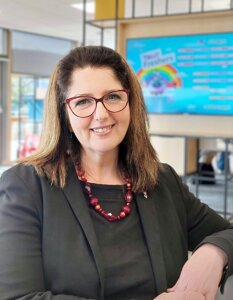
“We hope that sharing the way we have approached this kind of research will inspire other schools to see the benefits of participatory action research. Schools and teachers trust in the work of other schools and teachers, but taking a more research-informed approach means that we can develop research and knowledge exchange between schools and the university.”
Following on from the pandemic, research has shown that developing cognitive, social and emotional capability is vital for children and young people. These approaches must complement more traditional learning, so they need to be embedded carefully into the curriculum and ethos of a school.
The Mini Mind Programme is designed for children to understand how they think about themselves, life, and the world around them. It is a 12-hour programme of learning and support tasks.
Providing a training course for teachers is not enough: schools value reflecting on their actions in order to refine their efforts for maximum impact. Participatory action research, where schools identify their own goals and success criteria, provides the best example of research that empowers schools to make a difference!
Elizabeth, part of a team with Dr Kate Duffy in the School of Education, and John Baumber and Kevin Holland of Global Spirit Ed CIC, will work with local schools, co-constructing implementation plans and goals. They will provide research support before, during and after the implementation of the Mini Minds programme.
As well as direct impact on pupils in local schools, Elizabeth plans to develop and disseminate this model of participatory research so that it can be extended to schools within the wider Global Schools Research Partnership and University of Sunderland international school partners.
